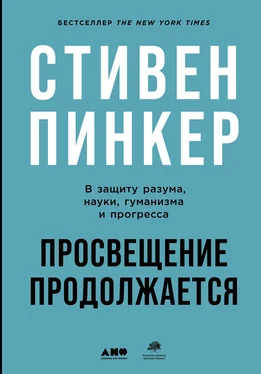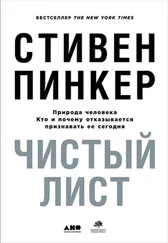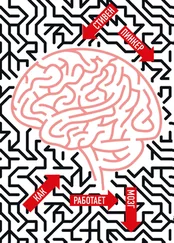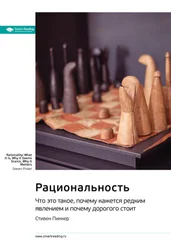Parfit, D. 2011. On what matters . New York: Oxford University Press.
Patel, A. 2008. Music, language, and the brain . New York: Oxford University Press.
Patterson, O. 1985. Slavery and social death . Cambridge, MA: Harvard University Press.
Paul, G. S. 2009. The chronic dependence of popular religiosity upon dysfunctional psychosociological conditions. Evolutionary Psychology, 7, 398–441.
Paul, G. S. 2014. The health of nations. Skeptic, 19, 10–16.
Paul, G. S., & Zuckerman, P. 2007. Why the gods are not winning. Edge . https://www.edge.org/conversation/gregory_paul-phil_zuckerman-why-the-gods-are-not-winning.
Payne, J. L. 2004. A history of force: Exploring the worldwide movement against habits of coercion, bloodshed, and mayhem . Sandpoint, ID: Lytton Publishing.
Payne, J. L. 2005. The prospects for democracy in high iolence societies. Independent Review, 9, 563–72.
PBL Netherlands Environmental Assessment Agency. (Undated.) History database of the global environment: Population. http://themasites.pbl.nl/tridion/en/themasites/hyde/basicdrivingfactors/population/index-2.html.
Pegula, S., & Janocha, J. 2013. Death on the job: Fatal work injuries in 2011. Beyond the Numbers, 2 (22). http://www.bls.gov/opub/btn/volume-2/death-on-the-job-fatal-work-injuries-in-2011.htm.
Pelham, N. 2016. Holy lands: Reviving pluralism in the Middle East . New York: Columbia Global Reports.
Pentland, A. 2007. The human nervous system has come alive. Edge . https://www.edge.org/response-detail/11497.
Perlman, J. E. 1976. The myth of marginality: Urban poverty and politics in Rio de Janeiro . Berkeley: University of California Press.
Peterson, M. B. 2015. Evolutionary political psychology: On the origin and structure of heuristics and biases in politics. Advances in Political Psychology, 36, 45–78.
Pettersson, T., & Wallensteen, P. 2015. Armed conflicts, 1946–2014. Journal of Peace Research, 52, 536–50.
Pew Research Center. 2010. Gender equality universally embraced, but inequalities acknowledged . Washington: Pew Research Center.
Pew Research Center. 2012a. The global religious landscape . Washington: Pew Research Center.
Pew Research Center. 2012b. Trends in American values, 1987–2012 . Washington: Pew Research Center. Pew
Research Center. 2012c. The world’s Muslims: Unity and diversity . Washington: Pew Research Center.
Pew Research Center. 2013. The world’s Muslims: Religion, politics, and society . Washington: Pew Re-search Center.
Pew Research Center. 2014. Political polarization in the American public . Washington: Pew Research Center.
Pew Research Center. 2015a. America’s changing religious landscape . Washington: Pew Research Center.
Pew Research Center. 2015b. Views about climate change, by education and science knowledge. Washington: Pew Research Center.
Phelps, E. A. 2013. Mass flourishing: How grassroots innovation created jobs, challenge, and change . Princeton, NJ: Princeton University Press.
Phillips, J. A. 2014. A changing epidemiology of suicide? The influence of birth cohorts on suicide rates in the United States. Social Science and Medicine, 114, 151–60.
Pietschnig, J., & Voracek, M. 2015. One century of global IQ gains: A formal meta nalysis of the Flynn effect (1909–2013). Perspectives in Psychological Science, 10, 282–306.
Piketty, T. 2013. Capital in the twenty-first century . Cambridge, MA: Harvard University Press.
Pinker, S. 1994/2007. The language instinct. New York: HarperCollins.
Pinker, S. 1997/2009. How the mind works. New York: Norton.
Pinker, S. 1999/2011. Words and rules: The ingredients of language . New York: HarperCollins.
Pinker, S. 2002/2016. The blank slate: The modern denial of human nature . New York: Penguin.
Pinker, S. 2005. The evolutionary psychology of religion. Freethought Today . https://ffrf.org/about/getting-acquainted/item/13184-the-evolutionary-psychology-of-religion.
Pinker, S. 2006. Preface to “What is your dangerous idea?” Edge . https://www.edge.org/conversation/steven_pinker-preface-to-dangerous-ideas.
Pinker, S. 2007a. The stuff of thought: Language as a window into human nature . New York: Penguin.
Pinker, S. 2007b. Toward a consilient study of literature: Review of J. Gottschall & D. S. Wilson’s “The literary animal: Evolution and the nature of narrative.” Philosophy and Literature, 31, 161–77.
Pinker, S. 2008a. The moral instinct. New York Times Magazine, January 13.
Pinker, S. 2008b. The stupidity of dignity. New Republic, May 28.
Pinker, S. 2010. The cognitive niche: Coevolution of intelligence, sociality, and language. Proceedings of the National Academy of Sciences, 107, 8993–99.
Pinker, S. 2011. The better angels of our nature: Why violence has declined . New York: Penguin.
Pinker, S. 2012. The false allure of group selection. Edge . http://edge.org/conversation/steven-pinker-the-false-allure-of-group-selection.
Pinker, S. 2013a. George A. Miller (1920–2012). American Psychologist, 68, 467–68.
Pinker, S. 2013b. Science is not your enemy. New Republic, Aug. 6.
Pinker, S., & Wieseltier, L. 2013. Science vs. the humanities, round III. New Republic, Sept. 26.
Pinker, Susan. 2014. The village effect: How face o ace contact can make us healthier, happier, and smarter . New York: Spiegel & Grau.
Plomin, R., & Deary, I. J. 2015. Genetics and intelligence differences: Five special findings. Molecular Psychiatry, 20, 98–108.
PLOS Medicine Editors. 2013. The paradox of mental health: Over reatment and under ecognition. PLOS Medicine, 10, e1001456.
Plumer, B. 2015. Global warming, explained. Vox . http://www.vox.com/cards/global-warming/what-is-global-warming.
Popper, K. 1945 /2013. The open society and its enemies . Princeton, NJ: Princeton University Press.
Popper, K. 1983. Realism and the aim of science . London: Routledge.
Porter, M. E., Stern, S., & Green, M. 2016. Social Progress Index 2016 . Washington: Social Progress Imperative.
Porter, R. 2000. The creation of the modern world: The untold story of the British Enlightenment . New York: Norton.
Potts, M., & Hayden, T. 2008. Sex and war: How biology explains warfare and terrorism and offers a path to a safer world . Dallas, TX: Benbella Books.
Powell, J. L. 2015. Climate scientists virtually unanimous: Anthropogenic global warming is true. Bulletin of Science, Technology & Society , 35, 121–24.
Prados de la Escosura, L. 2015. World human development, 1870–2007. Review of Income and Wealth, 61, 220–47.
Pratto, F., Sidanius, J., & Levin, S. 2006. Social dominance theory and the dynamics of intergroup relations: Taking stock and looking forward. European Review of Social Psychology, 17, 271–320.
Preble, C. 2004. John F. Kennedy and the missile gap . DeKalb: Northern Illinois University Press.
Price, E. M. 2009. Darwin’s connection to Nazi eugenics exposed. The Primate Diaries . http://scienceblogs.com/primatediaries/2009/07/14/darwins-connection-to-nazi-eug/.
Price, R. G. 2006. The mis-portrayal of Darwin as a racist. RationalRevolution.net. http://www.rationalrevolution.net/articles/darwin_nazism.htm.
Proctor, B. D., Semega, J. L., & Kollar, M. A. 2016. Income and poverty in the United States: 2015 . Washington: United States Census Bureau. http://www.census.gov/content/dam/Census/library/publications/2016/demo/p60-256.pdf.
Читать дальше
Конец ознакомительного отрывка
Купить книгу












